Back in 1999, at the coldest EU summit I ever attended, held in Helsinki, it seemed that there had been at least a thaw in relations with Turkey. The country’s prime minister at the time, Mustafa Bülent Ecevit, braved the snow and no doubt admired the large ice sculpture outside the conference building to receive a warm welcome from EU leaders who had just agreed to accept Turkey as a candidate for full membership of the Union. It had applied to join what was then the European Economic Community (EEC) back in 1987. We journalists crowded around to catch a glimpse and throw the odd question to an Ecevit who looked a trifle non-plussed by all the attention, although he smiled a lot. Turkey had had an Association Agreement with the EU since 1963 and it looked as if the final roadblocks on the way to becoming a member state were being removed. Everyone was very cheerful about it, and not just because it was nearly Christmas (and there was a market selling Finnish craft work beside the icy harbour which could help solve the presents question).

Turkey had been declared eligible to join the EU in 1997, but full candidate status was something new. Ecevit, who was also a poet and a writer, succeeded in implementing several reforms in his country before falling out with the then President, Ahmet Necdet Sezer in 2001, which led to a financial crash. Following his whistle-stop visit to Helsinki, he wrote: “The Turks have been Europeans for 600 years. But the Turks are not only Europeans. They are also Asian, Caucasian and Middle Eastern at once. Turkey is a power in the Eastern Mediterranean and the Black Sea basins and the Balkans. It is becoming the energy terminal where the gas and oil riches of the Caspian Basin and the Caucasus will be transported to world markets.”
It was arguably the great reformer, Mustafa Kemal Atatürk, who turned what had become known as “the sick man of Europe” away from its historical Ottoman past and towards a more western future as a progressive, secular, industrial nation. The last time I was in Turkey, his portrait still graced the walls of shops, hotels and restaurants in Ankara, Istanbul and throughout the almost unreal land of Cappadocia, with its “fairy chimneys”.
A Turkish friend once complained, though, that Ataturk’s decision to drop Arabic script in favour of the Latin version meant that the brilliant poetry of an earlier generation was lost to current scholars who could no longer read it.
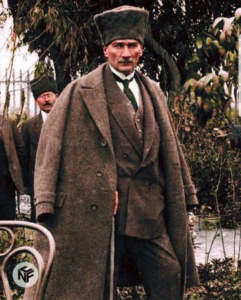
Still, Turkey sought its own way in a disputative west as best it could, becoming a founder member of the Council of Europe in 1949, long before the Treaty of Paris brought the European Coal and Steel Community into being and even longer before the much later Treaties of Rome and the resulting foundation of the European Communities. It had, until recently, remained at the forefront of reforming legislation, eagerly championing its Istanbul Convention against domestic violence through the Council of Europe, before the current leader, Recep Tayyip Erdoğan, lost sight of what most people deemed ‘liberal progress’, turning Turkey back towards its pre-Ataturk past.
Officially, Turkey still wants to join the EU but its chances of doing so seem to be dwindling. Negotiations were officially frozen in 2016 in response to Erdoğan’s erosion of human rights and the rule of law, especially following the attempted coup. Germany has called on its fellow member states to end the talks; Angela Merkel’s hostile view of Erdoğan was reinforced by him urging Turkish citizens in Germany to vote against her.
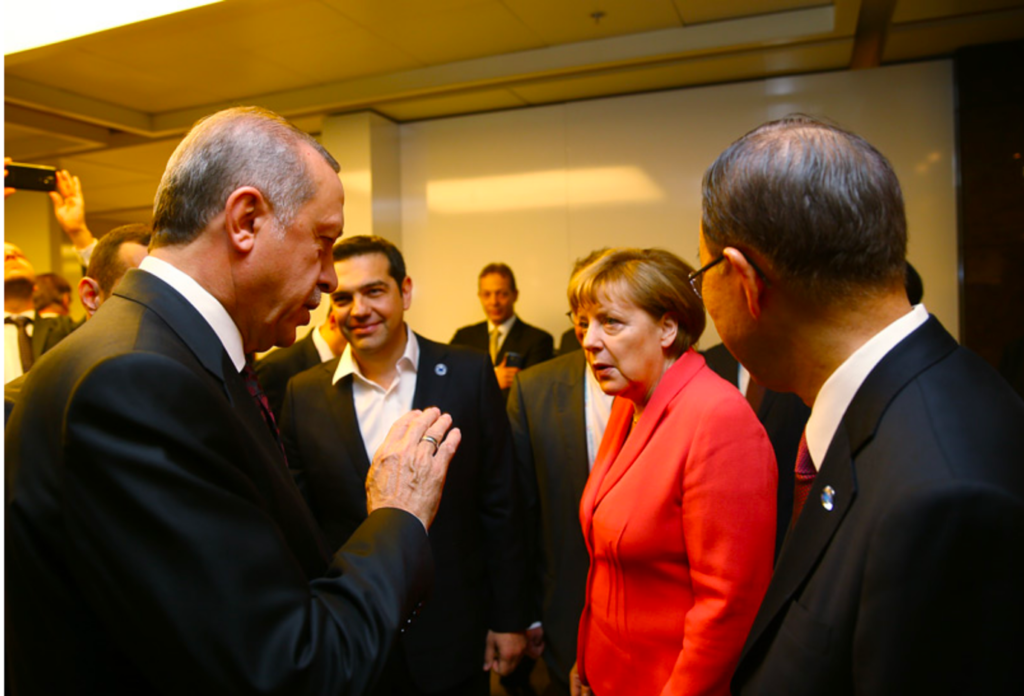
There are some three million Germans with Turkish roots, and interfering in another country’s election is very much frowned upon. Erdoğan’s more recent comments on Emanuel Macron suggest he has not yet learned the lesson. You may recall Erdoğan’s clampdown on political opponents following the failed coup attempt which drew a lot of criticism, including from Austrian Chancellor Christian Kern. Most member states are ambivalent; if asked, they would say they would like Turkey to join but not while Erdoğan remains in charge and pursuing his current illiberal policies. He’s not a democrat and the EU is made up of democracies. Britain was generally favourable to Turkish membership, but its views are now irrelevant, following its vote to leave the Union. Ireland would like Turkey to join, subject to internal reform, while Italy, Malta, Spain and Portugal would prefer talks to continue. Italy is, in any case, the third biggest trading partner Turkey has in the EU. The Baltic states tend to favour Turkey because it has stood by them through NATO as a defender against Russian aggression. Traditionally, Greece and Cyprus have supported Turkish accession, although the sabre-rattling over undersea gas in the Eastern Mediterranean and apparent Turkish indifference to national boundaries has weakened that support.
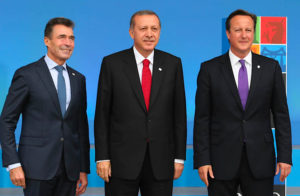
NATO, however, is a different matter and it was at NATO that Turkey and Greece agreed to set up a hotline on which crises over Ankara’s gas prospecting can be sorted out without resorting to violence. So, for Turkey, NATO looks sound, while the European Commission has described Turkey’s EU membership bid as “evaporating”.
“Erdoğan’s success in gradually transforming Turkey from semi-democracy to illiberal authoritarian regime, should alarm those who face populist leaders in power,” wrote
Julius Maximilian Rogenhofer and Ayala Panievsky in ‘Antidemocratic populism in power: comparing Erdoğan’s Turkey with Modi’s India and Netanyahu’s Israel’ on the website of Democratization, DOI. They characterise Erdoğan’s policies as something very distinct from democracy and not so far from simple populism. “In what may be referred to as a form of neoliberal clientelism,” they explain, “Erdoğan combined reductions in state-administered welfare services with an appeal to economically disadvantaged sections of society, from which the AKP (Erdoğan’s ruling Justice and Development Party) receives the majority of its votes. The loyalty of this constituency was secured using social assistance programmes that take place largely outside formal state structures and are framed around an emergent conservative, Islamist and nationalist ‘common sense’ within Turkey.”
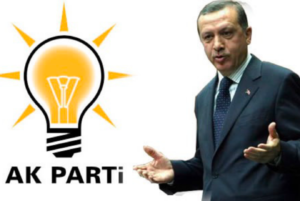
In fact, what Erdoğan seems to have done is pretty much what several other leaders have done elsewhere. “As recognized by the Dutch political scientist Cas Mudde,” argue Rogenhofer and Panievsky, “populism is a ‘thin’, ‘parasite’ ideology that does not articulate specific policies but offers a particular vision of society’s organization: it considers society to be ultimately separated into two homogeneous and antagonistic groups, ‘the pure people’ versus ‘the corrupt elite’, and which argues that politics should be an expression of the volonté générale (general will) of the people.” This was very much the technique employed by those wanting Britain to vote to leave the EU: the so-called ‘Brexiters’ saw themselves as honest working folk, overlorded by a posh ‘elite’. Bizarrely, the ‘honest working folk’ included extremely wealthy and privately educated members of the aristocracy and business leaders opposed to EU rules that might have reined in their profiteering, while anyone in favour of Europe but also generally well-informed and keen on such luxuries as reading and going to the theatre, were lumped in with the ‘elite’. It worked, achieving what the wealthy who wanted to shake off the rules governing business behaviour, set by the EU, wanted: no more restrictions on personal wealth generation. I still cannot see how I was classed as part of the ‘elite’, after going to a state school and working my way into my current relatively lowly position, while the likes of wealthy, Eton-educated Boris Johnson and hedge-fund owner Jacob Rees-Mogg are not. Could Erdoğan explain, I wonder? Could anyone? The populist playbook requires no explanation, by-passing the cerebral cortex and getting straight to the cerebellum. Don’t think about it; forget intellect and appeal solely to the unthinking emotions.
SILENCING THE OPPOSITION
The NGO Human Rights Watch (HRW) is deeply concerned about Turkey’s choice of direction. “While the consolidation of President Recep Tayyip Erdoğan’s unchecked power continued,” it wrote, “local elections on March 31, 2019, saw his Justice and Development Party allied with the far right lose in major cities including Istanbul and Ankara, despite winning 51 percent of votes nationwide. Opposition candidate Ekrem İmamoğlu massively increased his narrow win in Istanbul in a June 23 rerun of the election controversially authorized by the Higher Election Board without legitimate grounds.”
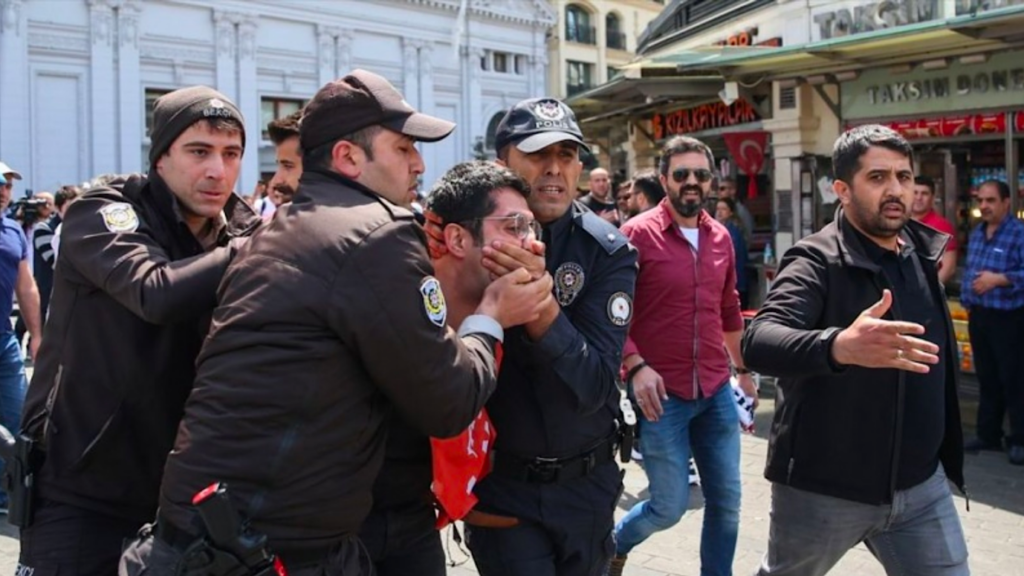
Meanwhile, Erdoğan continues to silence any opponents through the courts, bringing largely trumped up charges against anyone who opposes him. “Terrorism charges continued to be widely misused in the third year after the coup attempt,” writes HRW. “As of July 2019, Ministry of Justice figures stated that 69,259 people were on trial and 155,560 people still under criminal investigation on terrorism charges in cases linked to the Gülen movement, which Turkey’s government terms the Fethullahist Terrorist Organization (FETÖ) and deems a terrorist organization. Of those, 29,487 were held in prison either on remand or following conviction. An estimated 8,500 people—including elected politicians and journalists—are held in prison on remand or following conviction for alleged links with the outlawed Kurdistan Workers’ Party (PKK/KCK) and many more on trial but at liberty, although official figures could not be obtained.” Since then, things have got worse. Now Turkey, along with Poland, is considering withdrawal from the ground-breaking Istanbul Convention, which aims to end gender-based violence. Not every country favoured its adoption in the first place and Russia, Hungary and the United Kingdom declined to ratify it. In the UK’s case, it has been hinted, it’s because it makes domestic violence an offence in law, so that perpetrators would have to face charges, a court of law and possibly prison, while in cases involving members of the immigrant community, the UK would rather simply deport all those involved – victims and abusers alike – and let another country deal with the problem. Victims of domestic abuse must continue to suffer, it seems. I have met some and their stories are harrowing in the extreme. Not one received what might be called fair treatment from the authorities, even in cases where the perpetrator was jailed. In any case, it’s the ‘hidden crime’: victims don’t want to talk about it, feeling shame and a loss of self-esteem, while the violent partners come across to others as ‘nice chaps’ that no-one would suspect of thuggery.

Turkey pushed hard to get the Istanbul Convention adopted. Turkey has changed direction since then. Some of the countries refusing or delaying ratification object to the Convention because it accepts that the relationship at the centre of it can be homosexual, as well as heterosexual. The International Justice Resource Centre has examined and reported on some of the refusals. “In May 2020, the Hungarian legislature refused to ratify the Istanbul Convention, objecting to its definition of gender as ‘socially constructed’. Latvia’s Constitutional Court is examining the Istanbul Convention’s compatibility with the country’s constitution, following delays in its ratification. Bulgaria’s Constitutional Court held, in 2018, that the Convention was not compatible with its domestic legislation with regard to the definition of gender, and Bulgaria has not ratified the treaty. The United Nations Special Rapporteur on violence against women described Bulgaria’s interpretation of the Convention’s definition of gender as a “misinterpretation” and urged it to reconsider. Slovakia’s legislature, in November 2019, also rejected ratification of the Convention. The Council Of Europe’s Commissioner for Human Rights has recently urged Moldova to proceed with its stalled ratification process. Not surprisingly, perhaps, although the EU has signed the Convention it has not formally ratified it, either. Too many member states use the excuse of religion to maintain a man’s right to beat his partner, as many a hospital accident and emergency room can testify.
Even so, the Istanbul Convention, created by and fought for by Turkey and now opposed by the current government, is only part of the problem. Turkey itself seems to be rejecting the modern world in favour of something that might have been more familiar to the Pashas of old. A Pasha – or Paşa – was a powerful governor in the days of the Ottoman Empire. It means (sort of) boy or prince and is a very ancient title. Opposition parties are facing a clampdown that is disturbing the Council of Europe. “I don’t think I can really explain why,”
I was told by Swedish member of parliament Thomas Hammaberg, “but we have a picture of what is actually going on, and we are really talking about a crackdown; a crackdown on the political opposition there, which we feel is very serious, especially for a member state of the Council of Europe.”
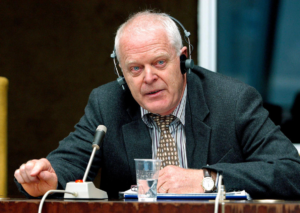
The issue was raised at the October meeting of the Committee on the Honouring of Obligations and Commitments by Member States of the Council of Europe, otherwise known as the Monitoring Committee. The Committee organised an urgent debate in January 2019 at which concern was expressed about a deteriorating situation regarding the rule of law, democracy and human rights in Turkey. Members were worried about the way in which 154 parliamentarians had had their immunity cancelled in 2016, about the restrictions imposed on freedom of expression and the media, about the reduction in the checks and balances in the new presidential system and about unfair electoral processes which have diminished, obstructed and undermined the ability of opposition politicians to exercise their democratic rôles. Some of them face arrest, prosecution and prison for daring to oppose the “Populist Pasha”.
That was back in 2019; now we move forward one year to a report drafted under Urgent Procedure for the Council of Europe Parliamentary Assembly. “Unfortunately, the overall situation has not improved since 2019,” it says. “In the past months there were new crackdowns on political opposition and civil dissent, which the Assembly strongly condemns.” Hammaberg co-drafted the latest report but was not able to see any reforms or improvements. “For instance, last year, 2019, there was a local election, and after that election, no less than 48 elected mayors could not take office because they were prevented by the government authorities from doing that, and they were actually pushed away from exercising the wish of the voters in those districts. And now no less than 64 out of 65 members of the HDP, one of the opposition parties, cannot serve as elected because of the intervention of the government.” In other words, the elections may be free and fair but Erdoğan can and does ignore the results if they don’t meet his approval, which makes the holding of any elections seem pretty irrelevant. Like Viktor Orbán in Hungary, Erdoğan effectively rules by decree, no questions asked. How can democratic bodies address that?
“I think I should make the point that what we are after is a sense of dialogue with Turkey,” said British MP John Howell, co-author of the report. “to understand what it is doing and why it is doing it.”
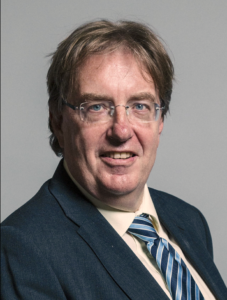
There is cross-party agreement on the need to tackle this issue – Hammaberg is a Socialist, Howell a Conservative – and simply ignoring it is not an option for those committed to democracy and the rule of law. “Turkey has been doing things that we think need explanation,” said Howell. “For example, lawyers that are defending people who are accused of terrorism are themselves being accused of terrorism, and that is something that we do not understand. We also think there is quite a lot we need to understand about how they value media freedom, in particular freedom of social media.” Erdoğan, of course, is far from being the only leader with serious doubts about the so-called Twittersphere. “We all know that social media is an absolute pain,” said Howell, “but nevertheless it is part of the media environment in which we all live and operate, and you can’t suddenly cut out certain sites simply because you don’t like them, for instance Wikipedia, and hope to be able to get away with that without explanation.”
PLAYING HAPPY FAMILIES
I have already mentioned the plan to withdraw Turkey from the Istanbul Convention, which, whilst shocking to many, has also illustrated that there are limits to the overall, unchallengeable power of the ruler.
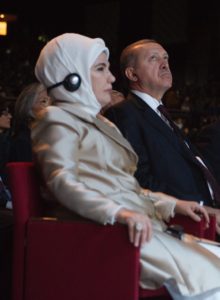
“President Recep Tayyip Erdoğan’s plans to withdraw Turkey from the so-called Istanbul Convention on domestic violence against women has angered many Turkish women – including his own party supporters and even some of his relatives,” says the website Reporting Democracy. “The controversial decision has created a division in Erdoğan’s ruling Justice and Development Party, AKP, as well as in women’s rights organisations close to his government. One of those is the Women and Democracy Association, KADEM, two of whose board members are from Erdoğan’s family: one is his daughter, Sümeyye Erdoğan-Bayraktar, and the other is Hafize Şule Albayrak, wife of the brother of Erdoğan’s son-in-law, Berat Albayrak, the Finance Minister.” Sümeyye Erdoğan-Bayraktar studied in the United States before gaining her MA in economics at the London School of Economics (LSE). Erdoğan family get-togethers must be lively affairs.
In September, the controversial satirical magazine Charlie Hebdo, whose office were once attacked in a murderous spree by Islamist killers for publishing cartoons of the Prophet Mohammad, showed on its cover a cartoon of Erdoğan lounging in his underwear, an image no worse than those faced by most Western leaders at some point. It caused outrage in Ankara, worsened by President Emmanuel Macron’s defence of Charlie Hebdo’s right to print whatever cartoons it likes following the murder of a Paris teacher by an extreme Islamist. “The latest spat has been co-opted by both France and Turkey as an opportunity to garner regional credibility and apply an ideological-religious dimension to their rivalry in the Eastern Mediterranean,” wrote Caroline Rose, who has a Masters of Science (MSc) in the History of International Relations from the LSE. She was writing on the website, Geopolitical Futures. “For France, it’s about earning credibility in the EU and among Eastern Mediterranean allies. For Turkey, it’s about distracting its citizens from financial hardship and positioning itself as the leader of the Sunni Islamic world.” Meanwhile, Turkey’s delegation to the UN continues to fight the allegation that it was involved in the Armenian Genocide, arguing that it cannot be considered genocide because the UN Convention on the Prevention and Punishment of Genocide wasn’t adopted until 1948. In other words, the event preceded the word, which therefore could not apply to the event. Arguing cases on the basis of a calendar, the order of events and simple semantics seems just a little desperate.
Even so, Turkey has certainly joined in the condemnation of terrorist attacks in France and Austria.
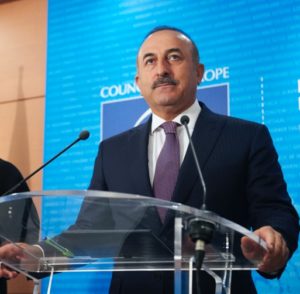
“Foreign Minister Mevlüt Çavuşoğlu condemned all forms of terrorism and added that Turkey expects the same level of empathy,” reported Daily Sabah in the aftermath of the spate of killings, especially the most recent attack at the time, which killed 5 people and injured 17 others in the Austrian capital, Vienna. “Turkey condemns the killing of innocent people in France and Austria in ‘barbaric terrorist attacks’ but also expects the ‘same empathy’ from other nations over the killings of thousands of people by PKK terrorists, Çavuşoğlu stated, speaking at the 130th Session of the Committee of Ministers of the Council of Europe.” There was an answer, too, to Macron’s defence of free speech in a secular society, the newspaper reported. “Çavuşoğlu also said that freedom of speech is a vital pillar of democracy, but ‘defaming the most sacred values of any religion cannot be presented as freedom of speech.’ Quoting the late French President Jacques Chirac’s 2006 speech, Çavuşoğlu said, ‘The freedom of speech should be exercised in the spirit of responsibility’.” John Howell, however, is still keen to see for himself at close range exactly what has been going on in Turkey, something that has not been possible because of the continuing COVID-19 situation. “I think the thing that Turkey has to bear in mind,” Howell said, “is that what it is doing may very well increase the feeling of resentment that there is within the country. For example, the mayors particularly down in the south of the country, who have been deprived of their elected office, and despite being found innocent by the courts, have not been allowed back in. That is not a good situation.” The Venice Commission has stated that the mayors should be in place, but it seems unlikely that Erdoğan is listening.
KURDS AND A WAY
Which brings us to the issue of Erdoğan’s pet hate figure, Abdulla Öcalan, the theoretical leader of the Kurdish PKK party, which he co-founded. For the last two decades, he has been held in solitary confinement in a prison on İmralı Island.
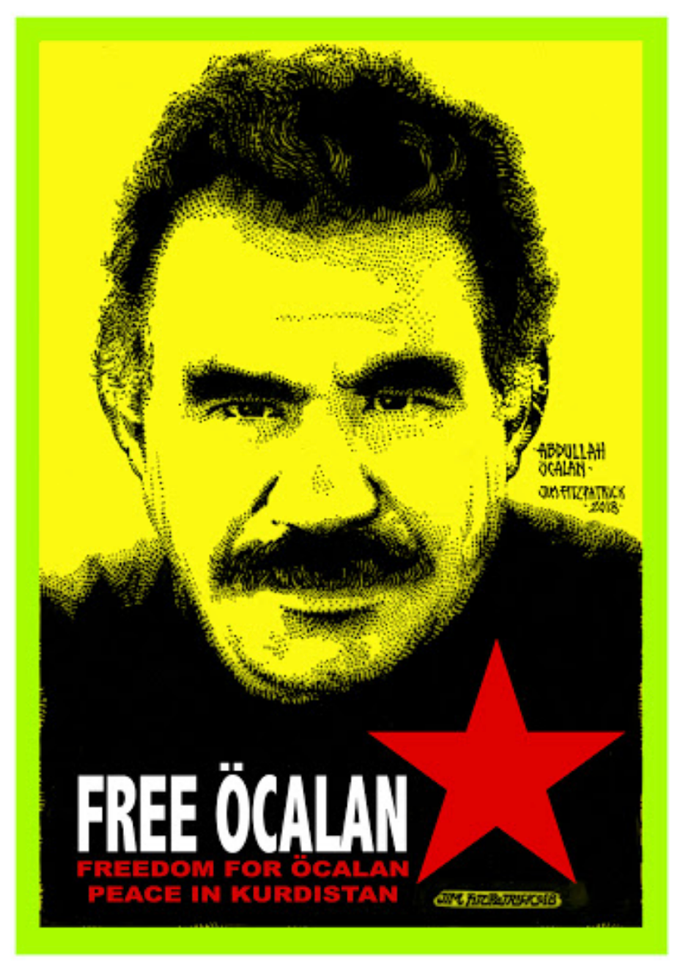
He has repeatedly demanded a peaceful, non-violent solution of co-existence between ethnic Turks and his Kurdish followers. Kurdish nationality has not, until more recent times, been a bar to being elected to parliament in Turkey – when I was in the country a few years ago, one in four of the MPs were Kurdish, although they weren’t allowed to mention the fact; flaunting your Kurdish ethnicity was banned. The police had raided family events in villages and arrested people for singing Kurdish traditional songs. Speaking to the far-left British newspaper Morning Star, the co-chair of Tevgera Azadiya (Kurdistan Society Freedom Movement), Tara Husain said: “By jailing Öcalan they [imperialist forces] tried to crush the Kurdish freedom movement. But his philosophy and ideology will lead us to a free society threatening their interests which is why they keep attacking Kurds in Bashur and Rojava.” Fighting talk, you might think, but Öcalan’s followers see things very differently. “Öcalan is the key to peace in the Middle East,” she insisted. It’s unlikely that Erdoğan agrees.
Öcalan himself is a left-wing politician. His endorsement by Morning Star and sections of the British trade union movement testify to that. He is unlikely to favour Turkey’s withdrawal from the Istanbul Convention. “A society can never be free without women’s liberation,” he wrote. He sees women as playing a vital rôle in Turkey’s future. “Woman’s success is the success of society and the individual at all levels,” he wrote. “The 21st century must be the era of awakening; the era of the liberated, emancipated woman. This is more important than class or national liberation. The era of democratic civilisation shall be the one when woman rises and succeeds fully.” Öcalan ordered his Kurdish forces to leave the country; he is not after territorial conquest, he says. In a speech in 2013, he called on all Kurdish guerrilla forces to withdraw from Turkey and to continue their struggle “only politically”. However, as long as he lives and has followers both inside Turkey and out, his arguments remain a thorn in Erdoğan’s side.
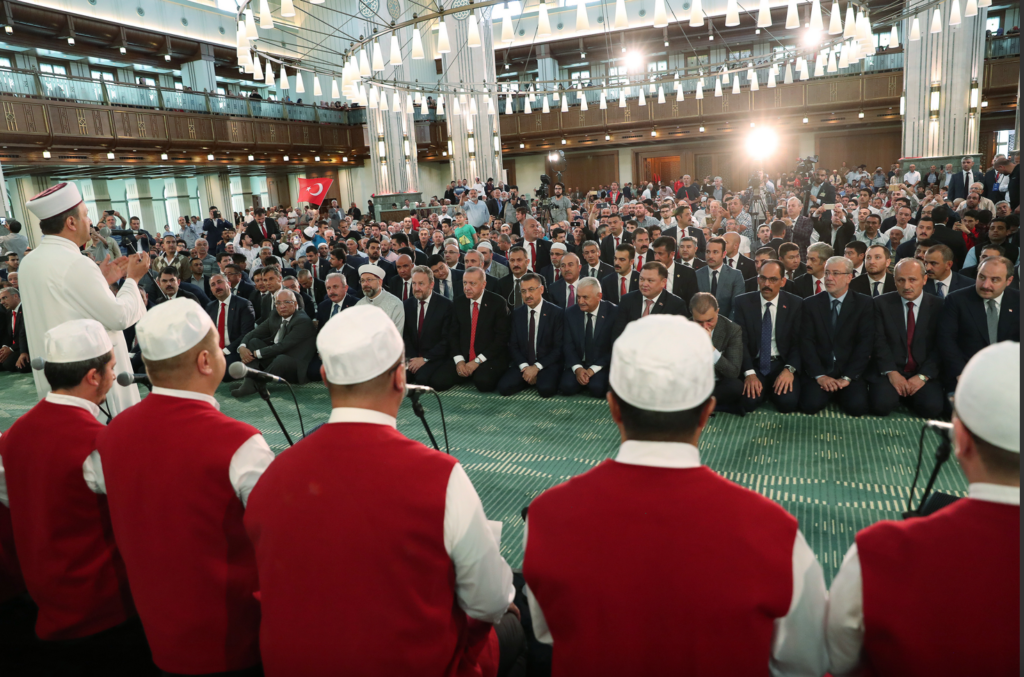
Another political problem arose in 2020, according to Thomas Hammaberg. “Three members of the parliament were put out of the parliament and their immunity was no longer respected, and for us the possibility of immunity is very important, and we feel there is a real need to review that type of decision. And now, in late September, there was another worrying development, namely that no less than 101 of the RPP, the main opposition party, got arrest warrants on them.” The RPP, officially known as the Cumhuriyet Halk Partisi or CHP, follows the edicts of the late Kemal Ataturk and is the oldest political party in Turkey.
MENELAUS BEHAVING BADLY
Meanwhile, Erdoğan’s uncompromisingly expansionist stance has led to tensions in the Eastern Mediterranean, with Turkey claiming the right to all of the undersea gas reserves, even those close to the shores of Greek-controlled islands. Erdoğan seems prepared to risk another Trojan War, this time not by stealing away Helen, the wife of Menelaus, King of Mycenaean Sparta, but by laying claim to all the undersea energy sources of which quite a lot have been discovered. A Turkish exploratory vessel, the Oruc Reis, had been sailing provocatively through sea areas claimed by Greece while the two countries shook sabres loudly at each other before eventually it returned to port.
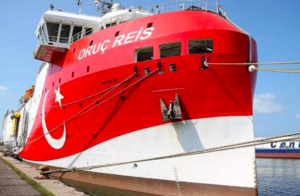
Since then, Turkish Foreign Minister Mevlüt Çavuşoğlu has met with his Greek counterpart Nikos Dendias. Greece and Cyprus wanted the EU to impose sanctions on Turkey, but EU foreign ministers merely condemned the Turkish action and asked for vessels to return to port, an attitude decried by Erdoğan as “caving in to Greek and Cypriot blackmail”. When the issue was raised at the European Parliament, MEPs called on Turkey to “immediately end any further illegal exploration and drilling activities in the Eastern Mediterranean, to refrain from violating Greek airspace and Greek and Cypriot territorial waters” and to stop what they called “nationalistic warmongering rhetoric.” Of course, the only threat the EU can make is the possible reimposition of sanctions on Turkey. “Pursuing dialogue in good faith and abstaining from unilateral actions which run counter to the EU interests and violate international law and the sovereign rights of EU member states is an absolute requirement in this regard,” said a statement issued after the last meeting of the Council. “All differences must be resolved through peaceful dialogue and in accordance with international law.”
One might hopefully imagine that close relations and trade could forestall conflict, but the area has a very well-documented history of conflict. Troy had been known to the Achaian Greeks since at least the middle of the second millennium BC; probably longer. This can be seen from the spread of Achaian and Mycenaean pottery along the coast of Asia Minor. Troy was one of the cities which showed the strongest Greek influence. There is not much well-defined proof: the Greeks started writing later, copying a syllabic system from Knossos on Crete after conquering it, while Troy’s allies, the Hittites, adopted cuneiform script rather earlier. It’s worth remembering that the area seems to have packed to the rafters with minor kingdoms ruled by minor kings who regularly invaded each other’s land and stole craftspeople, servants and, yes, women. In any case, the elopement of Helen with the Trojan prince Paris cannot have been a totally novel act, just a very annoying one for Menelaus.
The use of common names for places, wrote Joachim Latacz in his 2001 book ‘Troia und Homer’ also suggest strong links between the warring sides. “They reveal a natural familiarity on the part of the Mycenaean Greeks with the coastal region of Anatolia, the offshore islands and Troy,” he points out. “The frequent incidence specifically of women from these areas, entered as foreign workers, leads to further deductions: evidently there were Mycenaean raids on Anatolia and the offshore islands.” Hittite sources reveal that the capture of craftspeople and women was not unknown, which begs the question: apart from the fact that she was married to the King of Sparta at the time, what was so special about Helen that it led to 1,186 ships crossing the Aegean to wage war on Troy? According to Homer, she was rather special and the war was, he seems to think, understandable: “It is no cause for anger that the Trojans and the well-greaved Achaeans have suffered for so long over such a woman: she is wondrously like the immortal goddesses to look upon”, he wrote (allegedly) in the Iliad. Of course, we know only too well what is so special about vast gas reserves. Turkey’s pursuit of them, regardless of whether or not it leads to conflict with its neighbours, is not untypical of Erdoğan’s apparently burgeoning self-confidence. Sadly, there is no Homer (if there ever was one in reality) to record any resulting war. Achilles’ fondness for his friend Patroclus was seen as pure and laudable by Homer but I think it would get short shrift from Erdoğan.
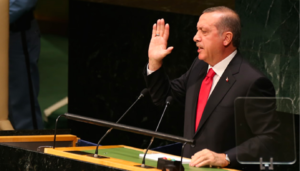
“Politicians need to be able to voice critical opinions against the government and those in power,” said Thomas Hammaberg, “and journalists the same. And if that is not possible, of course, there are democratic problems.” But Erdoğan cannot take criticism and seeks to silence it at every turn. “Maybe some people might say we’re naïve,” Hammaberg admits, “but we’re still trying to have a constructive dialogue with the authorities. But we will, of course, be in touch with the opposition.”
BACKWARDS MARCH
Certainly, Turkey’s actions are not likely to satisfy the Council of Europe or its many other critics. The arrests of lawyers for defending those accused and the criminalisation of the act of defending someone is a long, long way from the rule of law as normally defined. The Venice Commission has demanded the repeal of the 2020 amendments to the Attorneyship Law of 1969 while alternative solutions are sought. The report deplores violations of freedom of expression and the media and it’s deeply concerned by reports of torture and of the problems facing human rights defenders, academics, journalists and lawyers, all of whom have seen their human rights infringed.
In Autumn 2017, Turkish schools stopped teaching evolution, resorting to the more religious based alternative, creationism. Ataturk would have been furious and some richer Turks are sending their children abroad to study, or at least are backing up the school education with home teaching. According to the NPR news website, many parents and grandparents are concerned by this step back into the past. “I’m worried, but I hope it changes by the time my grandchildren are in high school,” Emel Ishakoglu, a retired chemical engineer, told the website while playing with her grandchildren, ages 5 and 2. “Otherwise our kids will be left behind compared to other countries when it comes to science education.” An attempt to oblige schools in some parts of the United States to teach creationism instead of evolution, or at least alongside it, was thwarted by the Supreme Court. The obligation to teach evolution has been challenged several times in the United States, sometimes in favour of ‘intelligent design’, but the Court has always ruled against it on the grounds that it is based on religion, not science, which would violate the Establishment Clause of the US Constitution. In the US, controversial issues are taken to a higher authority for judgement. In Turkey, it seems, Erdoğan is the ultimate higher authority. Over-confidence and sailing ships across the Aegean Sea may yet cause him problems. Maybe he should be extra-wary if he spots any wooden horses.

